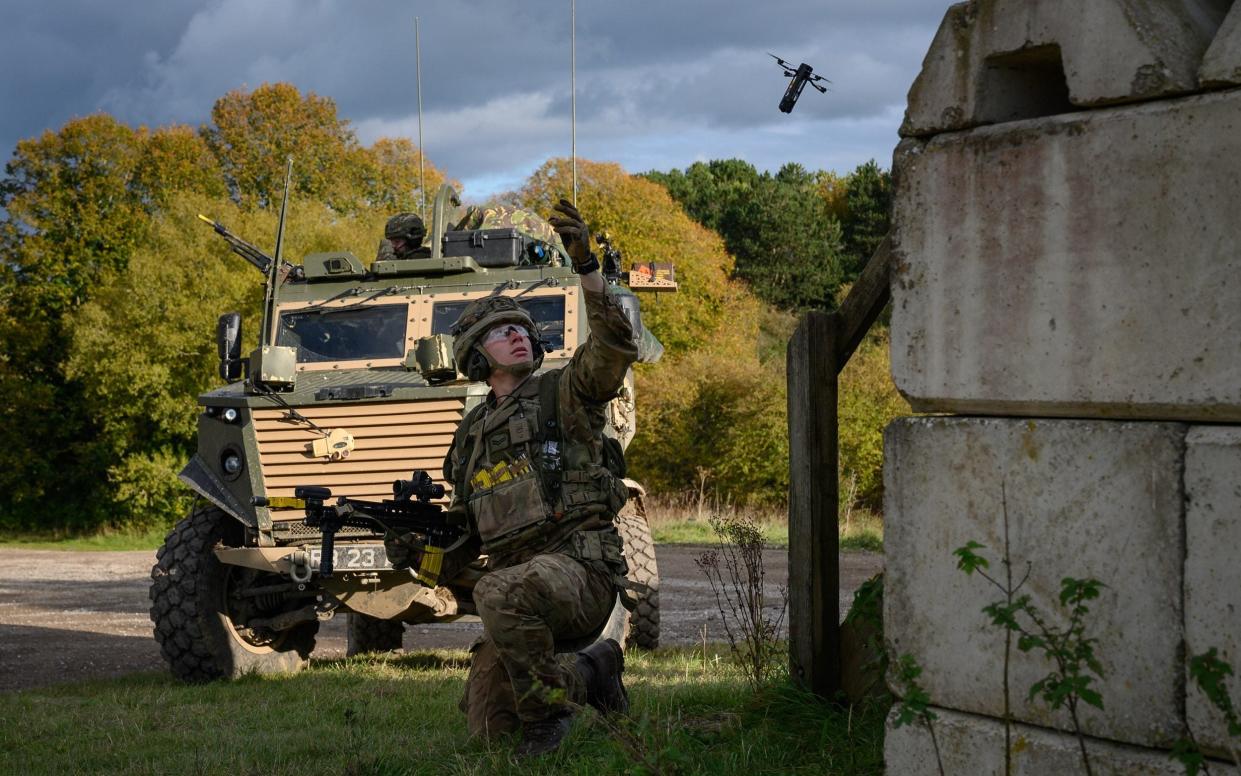Changing face of warfare means Armed Forces‘need more Qs than 007s’

The Armed Forces need more Qs than 007s, the Head of Strategic Command has said.
General Sir Patrick Sanders said future warfare needed to focus less on traditional methods and more on cyber, and called on the Armed Forces “to place equal value and afford equal status to computer scientists, data engineers and cyber operators as we do on the traditional warrior elite”.
“I have more need of Q, than I do 007,” Sir Patrick said.
Speaking at the opening of the DESI arms fair, Sir Patrick issued a stark warning to the military, stating that if it failed to adapt to the digital age, “we will at best become exquisite but irrelevant, and at worst we will die”.
“Fundamentally, the source of battlefield advantage will not come from platforms,” he said.
“If we focus, as some commentary has done, on the number of grey hulls the Navy has, the number of Fighter Squadrons in the RAF and the strength of the regular Army, we will simply perpetuate a traditional, industrial age force that is costly, exquisite and vulnerable to being defeated in detail.”
However, Sir Patrick acknowledged that in order to adapt, soldiers would need to be educated and trained to have the skills required to compete.
He said: “We will have to address the skills gap through attracting far more diverse talent, by inward investment so that coding and data literacy are seen as being as much a core skill as weapon handling, by much greater use of a larger and more diverse reserve, and by enabling a much more porous and flexible flow of talent between defence, industry and academia.”
He cautioned against the “predominant image” of defence being “aircraft carriers and jet fighters”.
“As important as these industries are, in a world in which capabilities are moving to the cloud and software and data can be as ‘real’ as any physical assets for a modern military, this image is dated,” he said.
Sir Patrick said adversaries such as Russia and China would inevitably gain a “decisive advantage” if the UK neglected to compete in a more “concerted and urgent way in AI technology”.
He said while the military’s current workforce was “brave, talented, inventive, resourceful and resilient”, it had so far failed to pursue “multi-domain integration” and did not have the “diversity and skills needed to be competitive in the digital age”.
As such, he said the military needed to learn to be agile while operating in the so-called grey zone and working with artificial intelligence. He added that investment in AI, such as autonomous systems, swarming, cyber defence, decision support and intelligence processing, would be at “the heart” of the UK becoming a science and technology superpower.

 Yahoo News
Yahoo News 
